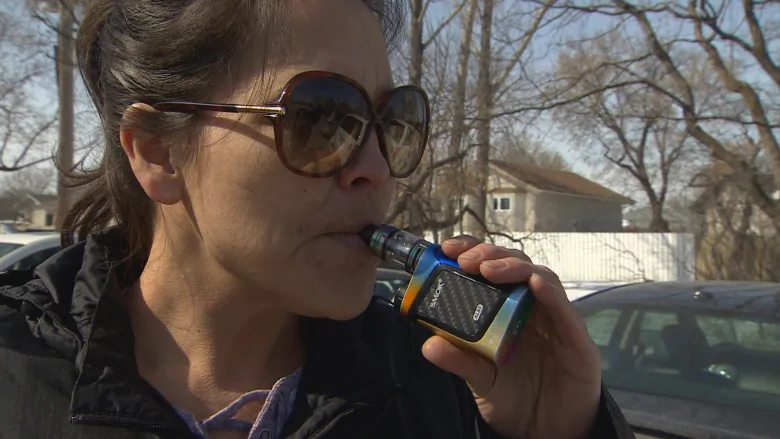If you are young and think you are immune to COVID-19, some doctors would like you to pay attention to the following message: Smoking and vaping could increase your risk of experiencing COVID-19’s harmful effects.

If you are young and think you are immune to COVID-19, some doctors would like you to pay attention to the following message:
“While COVID-19 is less likely to cause serious symptoms in younger people, in combination with substance use like vaping or smoking cigarettes or cannabis, it could pose a serious health threat,” says a March 24 commentary written by Dr. Nicholas Chadi and Dr. Richard Bélanger of the Canadian Pediatric Society.
They are among the public health experts sounding the alarm about the possible connections between lung damage caused by smoking or vaping and increased vulnerability to the novel coronavirus.
The Canadian Pediatric Society commentary urges physicians and parents to make sure young people know:
- Vaping and smoking — cigarettes or cannabis — weaken the lung’s regular defences and affect cardiovascular health.
- Based on observations of adults, these activities may put young people at increased risk of severe coronavirus infection.
- Young people who smoke or vape may be more likely to develop complications from coronavirus like pneumonia or acute respiratory distress, which could result in hospitalization and/or treatment in an intensive care unit.

Outside the Polo Park Shopping Centre in Winnipeg, Stuart Stephen, 19, and David Bergen, 23, were huddled in the wind, sharing a smoke.
Asked if they are worried about sharing saliva, Stephen said “No.”
“Not with him. We don’t have coronavirus. I don’t, he doesn’t. Just a friendly smoke,” he said, handing the cigarette to his friend.
Both of them say they have been smoking and vaping for years, but they don’t seem concerned about the potential damage to their lungs and whether that makes them more at-risk for COVID-19.
“Coronavirus is more common in older people than younger, statistics have shown, so I’m not too worried about it,” Stephen said.
Changing attitudes
That attitude is common, and is precisely the problem, said David Hammond, a professor in the School of Public Health at the University of Waterloo.
“It’s part of this idea that young people have that they’re bulletproof, that these things are for older

